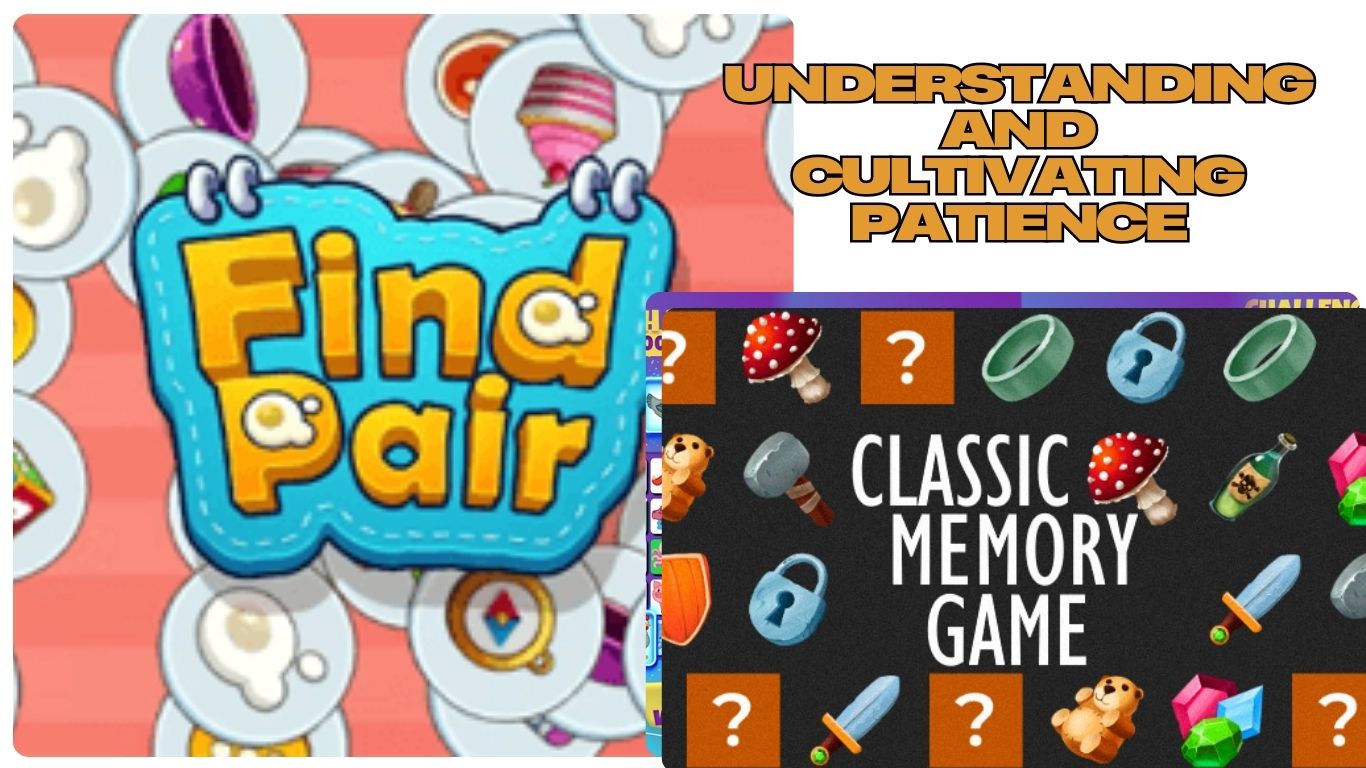In our fast-paced world, where instant gratification often reigns supreme, the ability to wait calmly and without frustration might seem like a superpower. That superpower is patience. It’s more than just waiting; it’s about how we handle that waiting period. Patience is a valuable trait that can positively impact our relationships, our success, and our overall well-being. Let’s take a closer look at what patience really means and how we can all become a little more patient in our daily lives.
Defining Patience: More Than Just Waiting
When we think of patience, the first thing that comes to mind is often simply waiting. But patience is much more than just the act of waiting. It involves the capacity to accept delays, difficulties, or suffering without becoming angry, anxious, or upset. It’s about maintaining a sense of calm and composure even when things aren’t happening on our desired timeline.
Intense Detail: Imagine being stuck in a long line at the grocery store. Someone with patience might take a deep breath, perhaps listen to a podcast, or simply observe the people around them. Someone lacking patience might fidget, sigh loudly, or even become visibly angry. This simple scenario highlights the difference between merely waiting and truly being patient. Patience involves emotional regulation – the ability to manage our feelings and reactions in the face of delays or frustrations. It also involves a certain level of acceptance that things don’t always go according to our plans.
Why is Patience So Important?
Patience might seem like a passive trait, but it’s actually a powerful force in our lives. It plays a crucial role in our personal growth, our relationships with others, and our ability to achieve our goals.
Intense Detail: In terms of personal growth, patience allows us to learn from our mistakes and setbacks. When we encounter challenges, patience helps us to persevere and keep trying instead of giving up easily. It also fosters resilience, the ability to bounce back from difficult experiences. In our relationships, patience is essential for understanding and empathizing with others. People move at different paces and have their own struggles, and patience allows us to be more understanding and supportive. Professionally, patience can lead to better decision-making. When we’re not rushed or pressured, we can think more clearly and make more thoughtful choices. It also helps in navigating long-term projects and dealing with the inevitable obstacles that arise. Ultimately, patience contributes to a greater sense of inner peace and well-being, reducing stress and anxiety associated with frustration and impatience.
The Wonderful Benefits of Being a Patient Person
Cultivating patience can bring a wealth of positive outcomes into our lives. It’s a trait that often leads to greater success and happiness.
Intense Detail: Patient people tend to experience less stress and anxiety. When we’re not constantly agitated by delays or frustrations, our bodies and minds remain calmer. This can lead to better sleep, improved concentration, and even a stronger immune system. Patience also fosters stronger relationships. When we are patient with others, we are more likely to be seen as understanding, supportive, and reliable. This builds trust and strengthens bonds. In the pursuit of goals, patience allows us to stay focused and persistent, even when progress is slow. It helps us to see the bigger picture and not get discouraged by temporary setbacks. Patient individuals are often better at problem-solving. They are more likely to take a step back, analyze the situation calmly, and find creative solutions rather than reacting impulsively. Finally, patience can lead to greater overall satisfaction with life. By accepting that things take time and effort, we can appreciate the journey as much as the destination.
The Challenges of Practicing Patience in Modern Life
Let’s be honest, being patient in today’s world can be tough. We live in an era of instant communication, fast food, and on-demand entertainment, which can make waiting for anything feel particularly challenging.
Intense Detail: The constant bombardment of information and the expectation of immediate responses can train our brains to expect instant gratification. Social media often showcases curated versions of reality, making it seem like everyone else is achieving their goals quickly and effortlessly, which can fuel impatience with our own progress. The sheer pace of modern life, with packed schedules and constant demands on our time, can also make it difficult to slow down and practice patience. Traffic jams, long customer service wait times, and technological glitches are just a few everyday frustrations that can test our patience on a regular basis. Recognizing these modern-day challenges is the first step towards consciously choosing a more patient response.
Practical Strategies for Developing Your Patience Muscles
The good news is that patience is a skill that can be learned and strengthened over time. It’s like a muscle – the more you use it, the stronger it becomes. Here are some practical strategies to help you cultivate more patience in your daily life.
Intense Detail: Practice mindfulness: Paying attention to the present moment without judgment can help you become more aware of your feelings of impatience as they arise. Take deep breaths: When you feel your patience wearing thin, a few slow, deep breaths can help calm your nervous system and regain composure. Reframe your perspective: Try to look at delays or frustrations as opportunities for something else, or simply as a temporary inconvenience. Practice empathy: Trying to understand the other person’s perspective can make it easier to be patient with their actions or pace. Engage in relaxing activities: Activities like reading, listening to music, or spending time in nature can help reduce overall stress levels, making it easier to be patient in challenging situations. Set realistic expectations: Understand that not everything will happen on your desired timeline, and be prepared for delays. Focus on what you can control: Instead of getting frustrated by things you can’t change, focus your energy on what you can influence. Celebrate small acts of patience: Acknowledge and appreciate when you successfully navigate a frustrating situation with patience. Learn from your triggers: Identify the situations or people that tend to make you impatient and develop strategies for dealing with them.
Patience in Action: Real-Life Examples
Patience isn’t just an abstract concept; it plays out in tangible ways in various aspects of our lives.
Intense Detail: In relationships, patience allows us to navigate disagreements calmly, listen attentively to our loved ones, and offer support during difficult times. For example, being patient with a child who is learning a new skill or with a partner who is going through a tough period can significantly strengthen the relationship. At work, patience is crucial for tackling complex projects, dealing with challenging clients, and navigating workplace dynamics. A patient approach can lead to more thoughtful solutions and better professional relationships. When dealing with frustrations, whether it’s a technical glitch or a bureaucratic process, patience helps us to remain calm and persistent in finding a resolution rather than giving up in anger. Even in pursuing personal goals, like learning a new language or mastering a musical instrument, patience is essential for persevering through the initial challenges and celebrating the gradual progress.
Knowing the Difference
It’s important to distinguish between patience and passivity. While both involve a degree of waiting, they are fundamentally different. Patience is an active choice to remain calm and composed while waiting for something to happen or while dealing with a difficult situation. Passivity, on the other hand, often involves a lack of action or a resignation to circumstances without any attempt to influence them.
Intense Detail
A patient person might wait calmly for a doctor’s appointment while reading a book, knowing they will eventually be seen. A passive person might simply accept a long wait without even inquiring about the delay or considering other options. Patience involves inner strength and self-control, while passivity can stem from a lack of motivation or a feeling of helplessness. It’s about waiting with intention and a positive outlook, rather than simply giving up or accepting things as they are without question.
The Enduring Value of Patience in a Hectic World
In a world that often glorifies speed and instant results, the quiet strength of patience remains incredibly valuable. It’s a trait that not only benefits us individually but also contributes to more harmonious relationships and a more peaceful society. By consciously cultivating patience, we can navigate the inevitable challenges of life with greater ease, resilience, and inner calm.
